Where can I park my car overnight without getting towed? Answer is – Finding safe overnight parking can be tricky. To avoid getting towed, consider options like 24-hour businesses (some Walmart’s, casinos, etc.), designated rest areas, some residential streets (check for signs), friends’ or relatives’ driveways, or paid parking garages. Always research local parking regulations and look for any posted restrictions before leaving your vehicle.
Summary
- The risks of improper overnight parking include towing and potential fines.
- Many 24-hour businesses allow overnight parking, but it’s always courteous to check their policies.
- Highway rest areas are designed for overnight stays.
- Residential street parking is sometimes an option, but carefully read all posted signs for restrictions.
- If you know someone with a driveway, consider asking if you can leave your car there.
- Paid parking garages offer security, but can be costly.
Where can I park my car overnight without getting towed
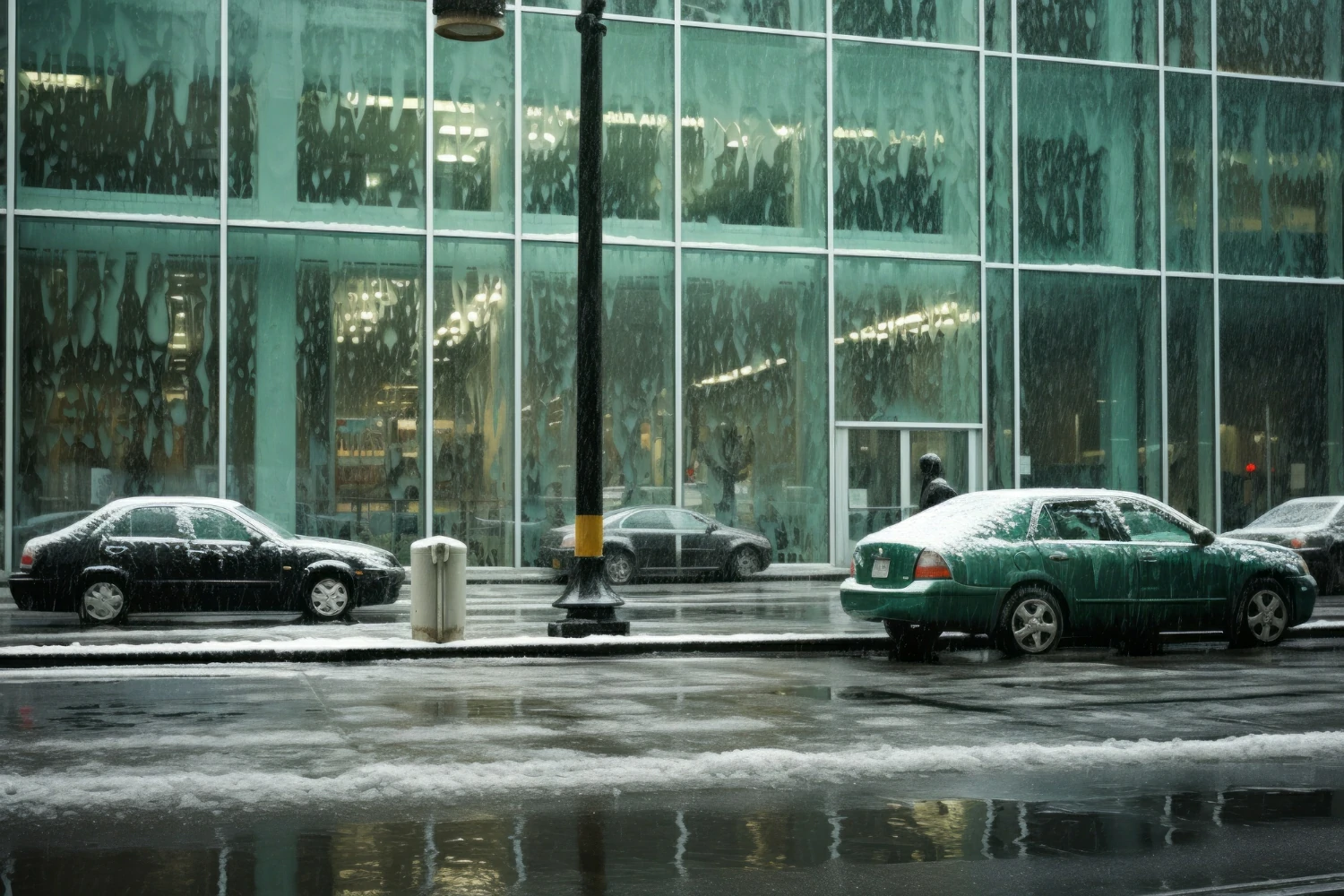
Finding a safe, legal place to park your car overnight can be a source of significant stress.
Whether you’re returning from a late-night event, road tripping and need a place to sleep, or facing a temporary parking dilemma at home, the wrong parking decision can be incredibly costly.
To help you avoid unnecessary hassle, let’s explore why overnight parking is so important and the potential consequences you’ll want to avoid.
The Importance of Secure Overnight Parking
Peace of mind: Knowing your vehicle is parked somewhere safe allows you to relax without worrying about its condition when you return. This is especially important if you’re traveling with valuables or using your car to sleep in temporarily.
Avoiding theft and vandalism: Sadly, cars parked in less secure locations are more vulnerable to break-ins, theft of parts, or even the entire vehicle. Overnight parking in designated areas greatly reduces those risks.
Respecting neighborhoods and businesses: Parking responsibly not only benefits you, but it also demonstrates consideration for residents and businesses. Improper overnight parking can lead to complaints and restrict future parking availability for everyone.
Consequences of Getting Towed
Anyone who’s ever had their car towed knows the pain and frustration it involves. Here’s why you’ll want to diligently avoid being towed:
Costly fees: Towing companies charge significant fees to retrieve your vehicle, on top of any fines you might incur from the city or property owner. These costs can stack up quickly, creating considerable financial strain.
Inconvenience: Getting your car back from a tow yard can be a major time drain. You’ll need to locate the facility, which may be in an out-of-the-way location, deal with potentially long wait times, and arrange transportation back to where you need to be.
Potential damage: While reputable towing companies make an effort to handle vehicles with care, there’s always a risk of damage occurring during the towing process or while your car is in storage.
Sarah Patel Expert Opinion
“The hassle and financial burden of getting towed is rarely worth the risk of parking somewhere you shouldn’t,” says Sarah Patel, a parking enforcement officer with over 15 years experience. “A little research ahead of time can potentially save you hundreds of dollars and a huge headache.”
Where Can I Park My Car Overnight Without Getting Towed?
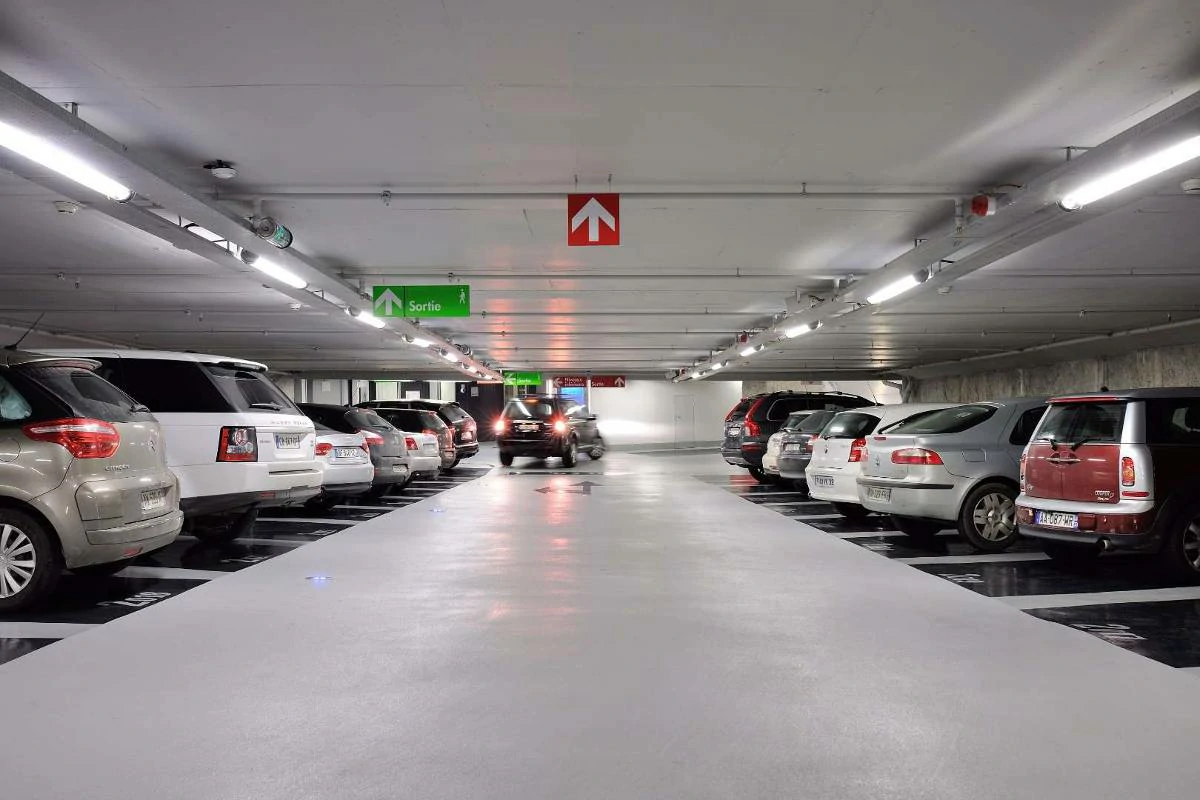
Finding the right overnight parking often requires a bit of planning and consideration. Below, we highlight some of the most common places where you’re likely to find safe, overnight parking options:
1. 24-Hour Businesses
Businesses operating 24/7 often have large parking lots, making them potential candidates for overnight parking. However, it’s crucial to note that not all 24-hour establishments permit this practice. Here’s a look at a few options:
Walmarts (with permission): Historically, many Walmart locations have been known to allow overnight parking, making them popular among RVers and travelers. However, always check for “No Overnight Parking” signs. Also, it’s incredibly important to obtain permission from store management first. You can find locations potentially allowing overnight stays on resources like Allstays.
Casinos: Some casinos welcome overnight parking, particularly those catering to long-distance travelers or those who might want to sleep in their vehicles. Always inquire directly with the casino about their specific policies.
Truck stops: These are designed for truckers to rest and often have ample parking and amenities like showers and convenience stores. While some allow general overnight parking, verifying their policies on the individual truck stop’s website is best practice.
24-hour restaurants or gyms: Some 24-hour establishments might be receptive to overnight parking, however, smaller parking lots can fill up quickly, especially during peak hours. If considering this option, always check with management to avoid any issues.
Alex Dubois Expert Opinion
“While some 24-hour businesses can offer overnight parking solutions, it’s never wise to assume,” advises transportation specialist Alex Dubois. “A quick phone call or checking online resources can provide clarity and ensure you’re not caught off guard.”
How to find Walmarts that allow overnight parking
While the landscape is constantly changing, here are some resources and tips:
Dedicated Apps and Websites: Sites like Allstays or Overnight RV Parking specialize in curating lists of businesses that allow overnight stays.
Call the store: The most reliable way to get up-to-date information is to call the specific Walmart location directly and speak to a manager.
Look for signage: Some Walmarts post “No Overnight Parking” signs – always respect these.
Observe the environment: If you see other RVs or campers, it’s a good sign that the location is likely tolerant of overnight stays.
Casino parking etiquette
Casinos are private property, so it’s absolutely vital to inquire about their policies to avoid misunderstandings. Here’s how to be a responsible guest:
Locate security or guest services: Ask directly about parking policies and if overnight stays are permitted.
Park considerately: Choose spots away from the main entrance in designated long-term parking areas, if available.
Patronize the casino (if possible): Casinos that allow overnight parking often do so with the expectation that guests will gamble, dine, or use their entertainment facilities.
2. Highway Rest Areas
Rest areas dotting major highways are purpose-built for travelers needing to take a break or rest overnight. They often offer amenities like restrooms, vending machines, and sometimes even WiFi or picnic areas.
Designed for overnight stays: Unlike most businesses, rest areas are intended for exactly this type of parking. However, it’s vital to check for posted time limits. Some rest areas may have restrictions on how many hours or nights you’re permitted to stay.
Safety considerations: Rest areas are generally well-patrolled and safer than parking along a random stretch of road. Stick to well-lit areas and use common-sense safety precautions when sleeping in your vehicle.
3. Residential Streets
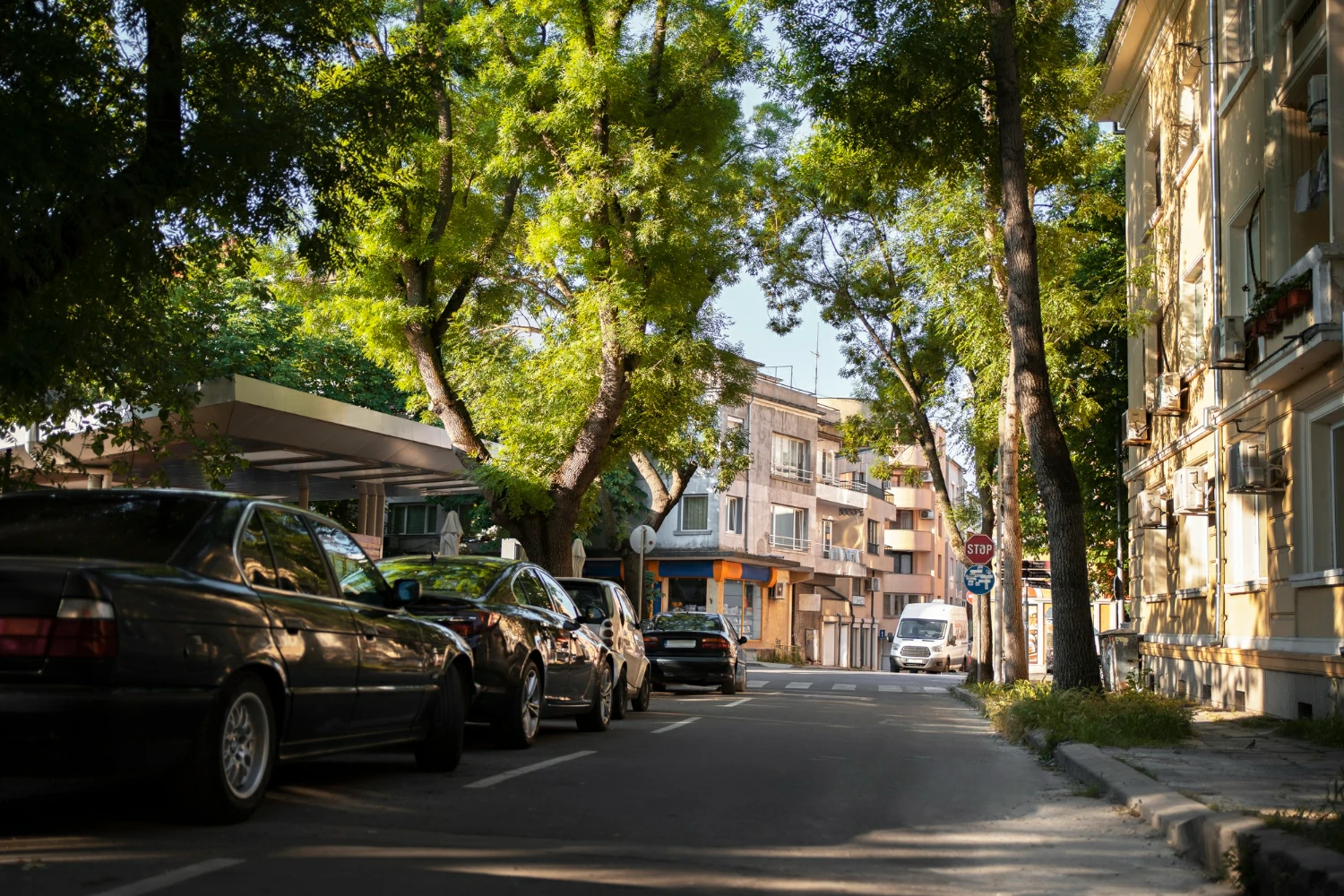
Parking on streets in residential areas can sometimes be a viable overnight solution, as long as you carefully adhere to both posted regulations and show consideration to residents.
Understanding parking restrictions: Before parking, meticulously scan for any signs indicating restricted parking zones, time limits, or if permits are required. You can often find city parking ordinances online. For example, search “[your city name] parking regulations”.
Neighborly considerations: Even if parking is technically legal, take a few extra steps to be respectful:
- Avoid blocking driveways or mailboxes.
- Park away from busy intersections for safety.
- Keep your engine noise minimal, especially late at night.
- Don’t leave any litter behind.
Emily Thompson Expert Opinion
“Residential parking can occasionally work in a pinch, but it requires a heightened level of responsibility,” notes community advocate Emily Thompson. “Putting residents’ needs first helps ensure that overnight parking remains an option for those who truly need it.”
Where to find parking regulations:
City Website: Most cities have a section of their official website dedicated to parking rules. Search for “[Your city name] parking ordinances”.
Signage: Always pay meticulous attention to posted signs. They will indicate time limits, permit requirements, or “No Parking” zones.
Neighborhood Associations: Some neighborhoods have websites or online groups where parking regulations might be discussed.
Best practices for street parking
Choose wisely: Favor streets with minimal houses or where cars are parked a good distance apart, minimizing your impact on any single resident.
Minimize footprint: Park as close to the curb as possible to maximize space on the street.
Don’t overstay your welcome: Even if parking appears permissible, try to rotate spots every few nights if you need frequent overnight parking in a neighborhood.
Leave it better than you found it: Never litter, and pick up any trash you see near your parking spot.
Dr. Olivia Harris Expert Opinion
“Being mindful of your surroundings is crucial for successful residential street parking,” says urban planning specialist, Dr. Olivia Harris. “It’s better to take a moment and find a slightly less convenient spot than to park in a way that disrupts the flow of the neighborhood.”
4. Friends’ or Family’s Properties
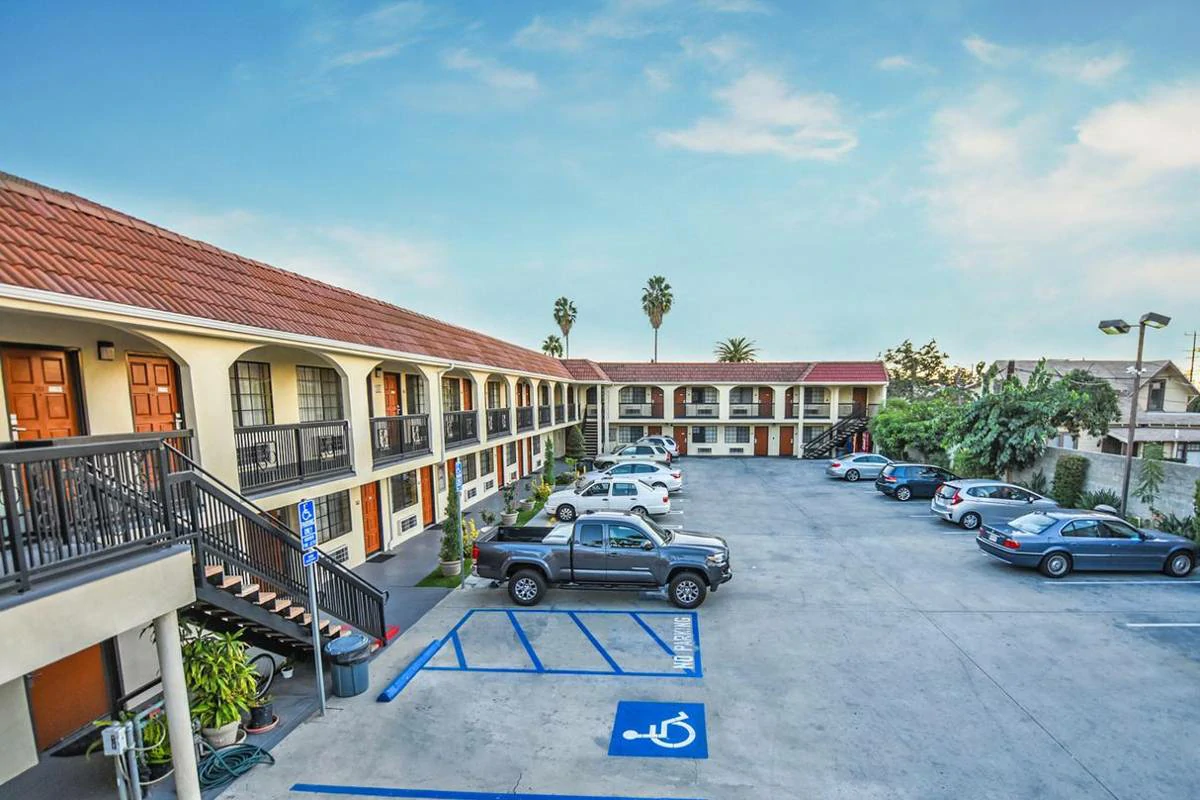
If you have a friend, relative, or even a kind neighbor with a driveway or off-street parking, this can be an excellent solution for overnight parking worries. Here’s why:
Security and peace of mind: You likely trust these individuals, thus reducing anxiety about the safety of your vehicle.
Convenience: Depending on your relationship, you might have more flexible parking options than what’s available on public streets or at businesses.
Reciprocity: If you can return the favor sometime, it’s a great way to build a stronger connection.
5. Paid Parking Garages or Lots
While paid parking can feel like an added expense, it provides a level of security and convenience that free options sometimes lack.
Downtown areas: If you’re in a city center, parking garages are often your best bet. They usually offer hourly or overnight rates.
Near airports or events: Many airports, stadiums, and event venues have designated parking structures with long-term options.
Finding the right fit: Apps like SpotHero or BestParking can help you compare prices and reserve a spot in advance.
When Paid Parking Makes Sense
Prioritizing security: If you’re leaving your car unattended for an extended period or have valuables inside, the peace of mind from a secure garage can be worth the cost.
Traveling for long stretches: For multi-day or multi-week trips, the expense of paid parking might outweigh the daily stress of finding a new free overnight spot.
6. Storage Facilities (Long-term Option)
If you need to park your vehicle for more than a few days, a storage facility might be the most practical solution.
Security and protection: Storage facilities often have indoor options, security cameras, and limited access, offering enhanced protection from theft and weather.
Monthly rates: Many facilities offer monthly rates that might be competitive with long-term paid parking garages.
Freeing up space: If you need to temporarily park a car you seldom use, a storage facility gets it out of your way.
Paul Nguyen Expert Opinion
“For long-term vehicle storage, considering your needs carefully matters,” advises Paul Nguyen, owner of a local car storage facility. “Think about whether you need climate control, if you might occasionally access the car, and compare the total costs with other long-term parking solutions.”
Additional Considerations
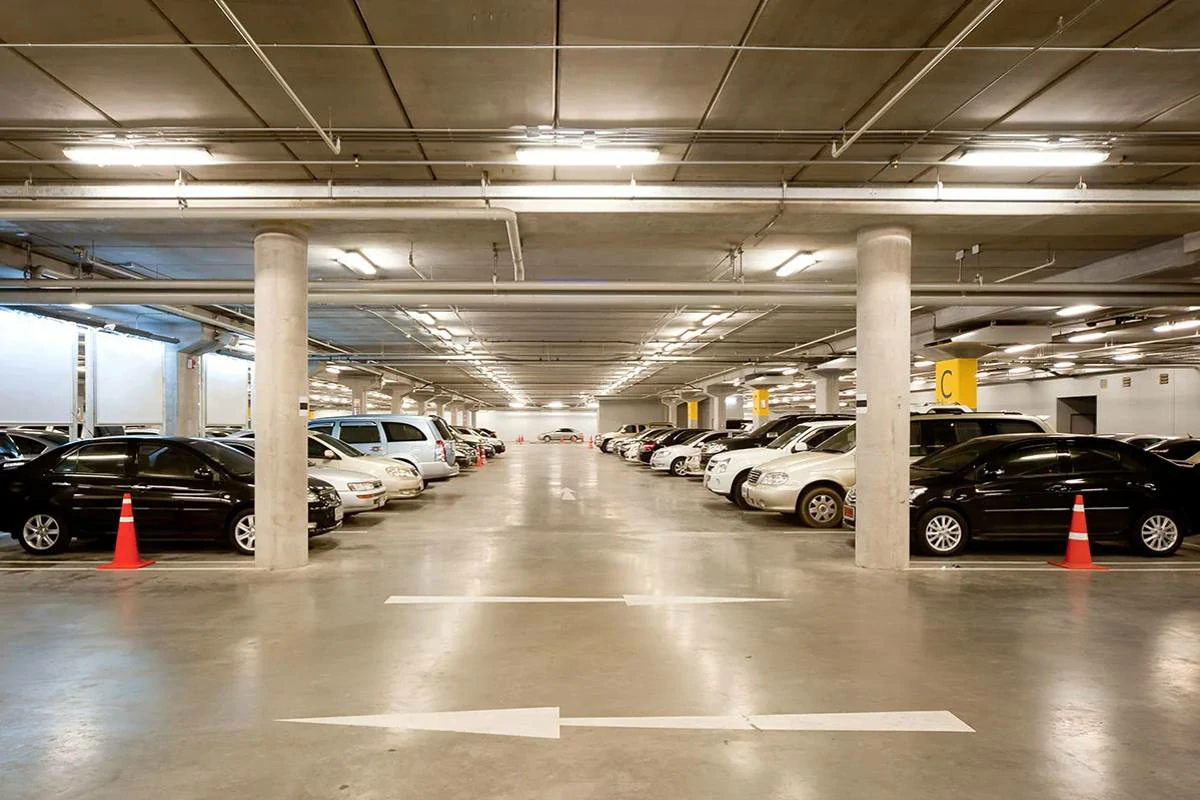
1. Local ordinances and parking laws
Parking regulations can vary greatly between cities, counties, and even individual neighborhoods. Familiarize yourself with the specific rules for the area where you plan to park.
City websites: Search for “[your city name] parking” to find official resources.
HOA rules: Homeowner Associations often have additional regulations on top of city ordinances. If parking in a neighborhood with an HOA, check their website or contact them for guidelines.
2. Safety precautions when parking overnight
Your safety is paramount. Follow these tips to help minimize risks:
Choose well-lit areas: Opt for parking spots under streetlights or in parking lots with ample lighting.
Park in sightlines: Try to position your car where it’s visible from the street or from nearby businesses, deterring potential break-ins.
Lock up and hide valuables: Never leave valuables in plain sight, and ensure your vehicle is locked, even if you’re sleeping in it.
Use common sense: If a location feels unsafe or unsettling in any way, trust your gut and find an alternative spot.
3. What to do if you’ve been towed
Unfortunately, even with diligent planning, sometimes cars get towed. Here’s what to do:
Locate your car: Find out where your vehicle has been taken by calling the police non-emergency line or searching towing company lots in the area.
Gather documentation: Bring your driver’s license, registration, and proof of insurance to retrieve your car.
Be prepared to pay: Towing fees and impound charges can add up quickly. Know the expected costs upfront.
Contest it (if applicable): If you believe you were towed in error, gather evidence (photos of the area, lack of signage, etc.) and contact the towing company or local authorities to dispute the tow.
Sarah Martinez Expert Opinion
“Taking a few extra precautions when choosing an overnight parking spot can make a world of difference,” stresses Officer Sarah Martinez with the city police department. “Lighting, visibility, and being aware of your gut feeling all play a part in a safer experience.”
Conclusion
Finding safe and legal overnight parking might sometimes require a bit of advance planning, but it doesn’t have to be overwhelming.
By utilizing a mix of options like 24-hour businesses (with permission), dedicated rest areas, residential streets (when done responsibly), and the support of friends, family, or paid parking facilities, you significantly improve your chances of finding a suitable spot.
Remember these key takeaways:
- Prioritize safety: Always choose well-lit, visible areas and trust your instincts if a location feels unsafe.
- Respect regulations: Heed parking signs, understand local ordinances, and never assume parking is permitted.
- Be a good neighbor: When parking in residential areas or utilizing businesses, park considerately and minimize your impact.
With a thoughtful approach and the information provided in this guide, you’ll be well-equipped to make informed decisions about where to park your car overnight, saving yourself stress, money, and the hassle of being towed.
FAQs
Q: Is it ever okay to sleep in my car overnight?
The legality of sleeping in your car varies greatly depending on location. Some cities have ordinances specifically prohibiting it, while others may allow it in certain areas. Always research local laws carefully. If sleeping in your car is a necessity, focus on prioritizing both your safety and respecting the location you’ve chosen.
Q: What if I can’t find any of the overnight parking options discussed?
Don’t panic! In this case, consider these alternatives:
- Campgrounds: Many campgrounds cater to overnight stays and often offer amenities like restrooms and showers.
- Apps and websites: Resources like iOverlander list free or low-cost overnight spots shared by the traveler community.
- Reach out for help: If you feel stuck, contact a local community organization or police non-emergency line for potential suggestions.
Q: Can I get in trouble for parking overnight in a business parking lot, even if I’m a customer?
Unfortunately, being a customer does not automatically guarantee overnight parking privileges. Each business sets its own policies. It’s always best to ask for permission from management beforehand, even if you’ve patronized the business that same day.







